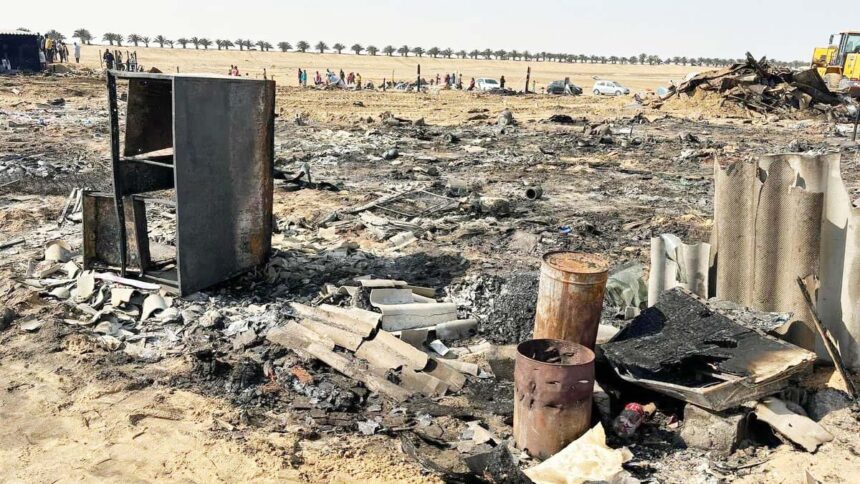WALVIS BAY – Walvis Bay municipal council is facing mounting criticism over a proposed shack levy, which homeowners say unfairly penalises them for the authority’s failure to deliver land.
This is all at a time the town continues to struggle with a severe shortage of affordable land and housing for low-income earners, frustrated residents say.
During a series of meetings held last month the Walvis Bay Town Council proposed various levies that, if approved, would be imposed on residents.
During one of the meetings, deputy mayor Saara Kaundokwa said the council was considering introducing several levies, including one for homeowners with backyard shacks.
This proposal has sparked outrage among community activists and residents, who argue that the council has failed to provide tangible solutions to the town’s housing crisis.
Over 50 000 people live in backyard shacks and flats, while the town’s housing backlog last year stood at 30 000 housing units.
Many of these residents are low-income earners, including taxi drivers, domestic workers and fishing industry employees who cannot afford home loans from financial institutions.
Kaundokwa said the shack levy is being considered as a disaster relief measure to assist families affected by frequent shack fires.
“When disasters such as shack fires occur, affected families need immediate assistance in the form of shelter, tents, mattresses, blankets, and food,” she explained.
She added that while people across the country often step in to assist, the town also needs a structured fund to support these victims.
Under the proposed plan, homeowners with backyard shacks would be required to contribute to this fund to ensure a swift response when disaster strikes. However, she did not specify the amount of the levy.
New Era understands that the proposed levy would be 12% of the total income homeowners generate from renting out backyard shacks.
Activists have rejected the proposed levy.
Community activist and former Walvis Bay Urban constituency councillor Knowledge Ipinge condemned the proposal, calling it an attempt to exploit already struggling residents.
He described it as “nothing but an attempt to squeeze blood from a stone while lining the pockets of RedForce (the debt collection agency) and abandoning your duty to the residents of Walvis Bay.”
Ipinge argued that instead of addressing the systemic housing crisis, the council is seeking to criminalise poverty.
“Rather than dismantling this oppressive system, you dare to punish the oppressed for your greed. Charging a levy on shacks is not just immoral; it is a violation of Article 95 of Namibia’s Constitution, which enshrines housing as a basic human right,” he said.
He accused the council of failing to provide any meaningful housing solutions since its election in 2020, adding that by resorting to taxing backyard shacks, the council acknowledges its failure to deliver a single dignified house during its tenure.
Ipinge has issued a 14-day ultimatum demanding the withdrawal of the levy and the immediate prioritisation of land servicing and housing development. He has also called for the expropriation and redistribution of all undeveloped land within the municipality that has remained in the hands of property developers for more than five years.
“If no action is taken, I will mobilise residents living in shacks to demand the resignation of all council members complicit in this daylight theft attempt,” he warned.
Residents
Residents have also voiced discontent, arguing that the proposed levy would push them further into financial hardship.
Maria Nujoma from Tutaleni questioned the council’s intentions, saying people would not be living in shacks if they had a decent place to stay.
“It feels like they just want to make money off us. Where is the money they have been collecting all these years as rates and taxes? That money should be used to service land,” said Nujoma.
Backyard tenant Immanuel Petrus echoed similar concerns, saying even if the intention behind the levy is good, this is simply not the right time to implement it.
He believes imposing a levy will only push up rent charges and force more people to occupy open spaces, creating an even bigger problem.
“I think it is best they decongest by using Farm 37 and relocate everyone living in shacks,” he said.
Marlyn Dausas, who inherited her home and cares for her two siblings, said the proposed levy will leave her struggling.
“I rent out four shacks in my yard, and that income helps me pay my rates and taxes. I make about N$4 500 in rent, but already N$2 000 goes to the municipality every month. If they introduce this levy, I’ll be left with next to nothing,” she said
Council yesterday declined to comment on the proposed levy.
Since 2020, Walvis Bay has experienced several significant fire incidents. In December 2021, a fire destroyed 25 shacks and three houses in the Tutaleni suburb, leaving more than 100 people homeless. In March 2022, a fire resulted in the death of a three-year-old child and displaced over 190 people in Tutaleni.
In October 2024, another blaze in the Otweya informal settlement destroyed over 70 shacks, affecting more than 200 residents.
-edeklerk@nepc.com.na


